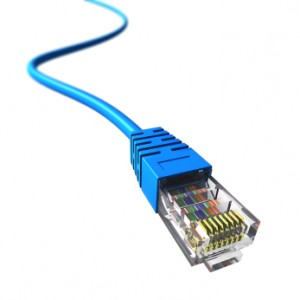Master Clocks and IP Clocks
If you have had the time to browse our website, you may have read dozens of blogs outlining the incredible benefits of installing an IP clock system in your facility. However, you may still have a few questions. One of these questions might be, should I purchase a master clock with my IP clock system? You will find that there is no definitive answer to this question—it entirely depends on your application. To help you decide what’s best for your facility, let’s start at the beginning.
What is an IP clock system?
An IP clock system is a synchronized timekeeping system in which all individual analogue or digital clocks receive their time via an NTP (Network Time Protocol) server via the network infrastructure of a facility. In addition to providing your clocks with the correct time, the NTP server will also provide the same accurate time to all time-receptive, networked electronics in the building. IP clocks work over the PoE (Power over Ethernet) protocol, meaning that each individual clock can receive both power and data from a single cable. In order to accomplish this, a facility must be equipped with either a pre-existing PoE switch, or must use PoE injectors. PoE injectors receive both data and power, and then channel these two inputs into a single output for the clock. IP clocks are particularly useful in large facilities or for applications that desires a greater level of control than other systems can provide.
What is a master clock?
A master clock is the means through which each individual slave clock receives the accurate time. A master clock can be used in a wired, wireless, or IP clock system, and receives its time input from its own internal clock, GPS, or the NTP server. Master Clocks insure that the time stays uniform throughout the facility, and is accurate to the millisecond with an NTP server or GPS receiver. Master clocks also have a variety of features, such as scheduling capabilities, automatic Daylight Saving adjustment, and the ability to employ a countdown feature in digital clocks.
How do the two work together?
If you choose, a master clock can be purchased in conjunction with your IP clock system, however, unlike a wireless or wired system, it is not necessary. Individual clocks in an IP clock system can receive the time directly from the network infrastructure without the aid of a master clock. For applications that are more cost-sensitive, this may be the best option as you save on the cost of the master clock. However, many facilities still decide to use a master clock because of its many features. Take, for instance, a school that has installed IP clocks in its facility. They benefit from the use of a master clock because the school bell system can be consolidated with the master clock so that bells are rung automatically, instead of manually. Master clocks allow for up to 800 events to be pre-programmed, meaning that facilities that employ a master clock will always be on schedule no matter what situation may arise.
As you can see, there is no right answer as far as whether or not your facility should choose to install a master clock in conjunction with your IP clock system. A cost-sensitive application will be happy with the freedom to refrain from purchasing a master clock, while applications that are more concerned with scheduling and efficiency will benefit from the addition of a master clock to automate a number of different daily processes. Still not sure what’s best for you? A member of our sales team will be happy to find the perfect fit.

